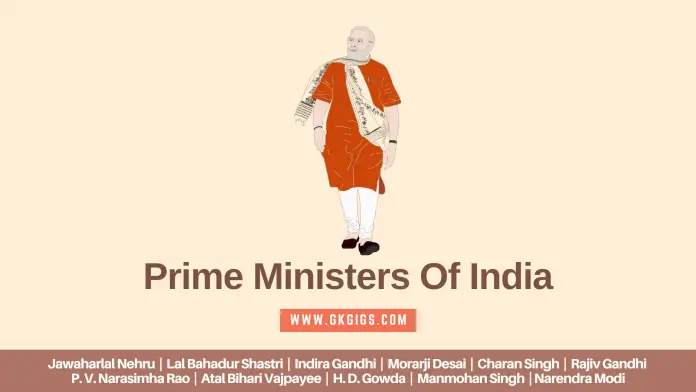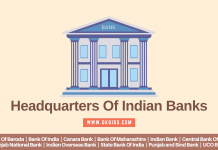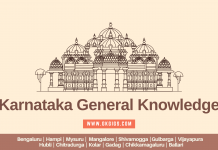
Last Updated: 23 December 2023
India follows a Parliamentary System. The Prime Minister of India is the Chief of the Executive of the Government and presiding Head of the Government.
| Eligibility For The Prime Minister Of India |
- Should be a Citizen of India
- Should be a Member of the Lok Sabha or the Rajya Sabha
- Should be above 25 years of age if He/She is a Member of the Lok Sabha and above 30 years if He/She is a Member of the Rajya Sabha
- He/She should not hold any office of profit under the state government or government of India
Page Contents
List Of All Prime Ministers Of India
| No. | Name | Term In | Term Out | Party |
|---|---|---|---|---|
| 1 | Jawaharlal Nehru | 05 Aug 1947 | 27 May 1964 | INC |
| ~ | Gulzarilal Nanda | 27 May 1964 | 09 Jun 1964 | INC |
| 2 | Lal Bahadur Shastri | 09 Jun 1964 | 11 Jan 1966 | INC |
| ~ | Gulzarilal Nanda | 11 Jan 1966 | 24 Jan 1966 | INC |
| 3 | Indira Gandhi | 24 Jan 1966 | 24 Mar 1977 | INC |
| 4 | Morarji Desai | 24 Mar 1977 | 28 Jul 1979 | JP |
| 5 | Charan Singh | 28 July 1979 | 14 Jan 1980 | JP(S) |
| ~ | Indira Gandhi | 14 Jan 1980 | 31 Oct 1984 | INC |
| 6 | Rajiv Gandhi | 31 Oct 1984 | 02 Dec 1989 | INC |
| 7 | V. P. Singh | 02 Dec 1989 | 10 Nov 1990 | JD |
| 8 | Chandra Shekhar | 10 Nov 1990 | 21 Jun 1991 | SJP |
| 9 | P. V. Narasimha Rao | 21 Jun 1991 | 16 May 1996 | INC |
| 10 | Atal Bihari Vajpayee | 16 May 1996 | 01 Jun 1996 | BJP |
| 11 | H. D. Deve Gowda | 01 Jun 1996 | 21 Apr 1997 | JD |
| 12 | Inder Kumar Gujral | 21 Apr 1997 | 19 Mar 1998 | JD |
| ~ | Atal Bihari Vajpayee | 19 Mar 1998 | 22 May 2004 | BJP |
| 13 | Manmohan Singh | 22 May 2004 | 26 May 2014 | INC |
| 14 | Narendra Modi | 26 May 2014 | Incumbent | BJP |
Full-Forms Of Party Names
| No. | Acronym | Full-Form |
|---|---|---|
| 1 | INC | Indian National Congress |
| 2 | JP | Janata Party |
| 3 | JP(S) | Janata Party (Secular) |
| 4 | JD | Janata Dal |
| 5 | SJP | Samajwadi Janata Party |
| 6 | BJP | Bharatiya Janata Party |
Related: Union Cabinet Ministers Of India With PDF (2024 Updated)
Power And Function Of Prime Minister Of India
- Prime Minister nominates the Members of their Party to the President. In simple words, he proposes the names of the Members of his Political Party to the President for appointment as Ministers.
- The Prime Minister of India is responsible for aiding and advising the president in the distribution of work of the government to various ministries and offices.
- Prime Minister is in charge of:
- Cabinet Secretariat
- Appointments Committee of the Cabinet
- Cabinet Committee on Security
- Ministry of Personnel, Public Grievances, and Pensions
- Cabinet Committee on Economic Affairs
- NITI Aayog
- Department of Atomic Energy
- Department of Space
- Nuclear Command Authority
- The Prime Minister represents India in various delegations, high-level meetings, and international organizations.
- He/She also addresses the nation on various issues of national or other importance.
- Prime Minister recommends the president of India, names for the appointment of:
- Chief Election Commissioner of India (CEC)
- Comptroller and Auditor General of India (C&AG)
- Chairperson and Members of the Union Public Service Commission (UPSC)
- Commissioners of India (ECs)
- Chairperson and Members of the Finance Commission (FC)
- Solicitor General of India (SG) and Attorney General of India (AG)
- Chief Information Commissioner of India (CIC) and Information Commissioners of India
- He/She can suggest the President of India for the resignation or removal of any Minister from his Cabinet.
- The Prime Minister can resign at any time and can suggest the President dissolve the Cabinet.
- He/She can suggest the President dissolve Lok Sabha and organize fresh elections.
- The Prime Minister also exercises the control over Indian Administrative Service (IAS)
| Read More |
- Gk On Interesting Facts About All 14 Prime Ministers Of India
- Council Of Ministers Of India (All 28 Indian States)
- List Of Important Days And Dates In India (2024 Updated)
- Attorney General Of India (2024 List Updated)
- List Of Indian Defence Minister (2024 Updated)
Advertisement













“Author thanks for compiling this information. Your efforts are appreciated.”